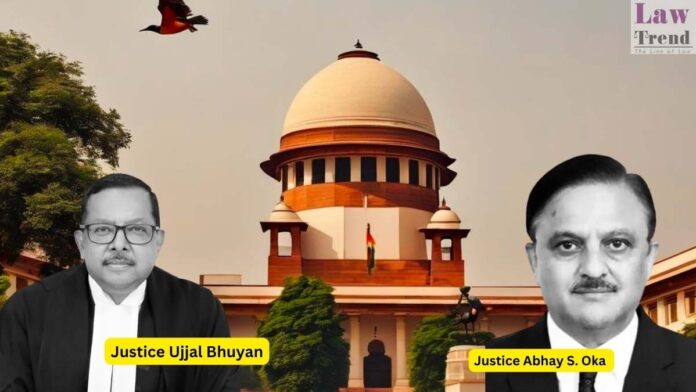In a significant ruling, a Supreme Court Bench comprising Justice Abhay S. Oka and Justice Ujjal Bhuyan reaffirmed the principle that jurisdictional objections in arbitration proceedings must be raised before the submission of a statement of defence. The judgment came in the case of M/s Vidyawati Construction Company v. Union of India [Civil Appeal No.
To Read More Please Subscribe to VIP Membership for Unlimited Access to All the Articles, Download Available Copies of Judgments/Order, Acess to Central/State Bare Acts, Advertisement Free Content, Access to More than 4000 Legal Drafts( Readymade Editable Formats of Suits, Petitions, Writs, Legal Notices, Divorce Petitions, 138 Notices, Bail Applications etc.) in Hindi and English.




